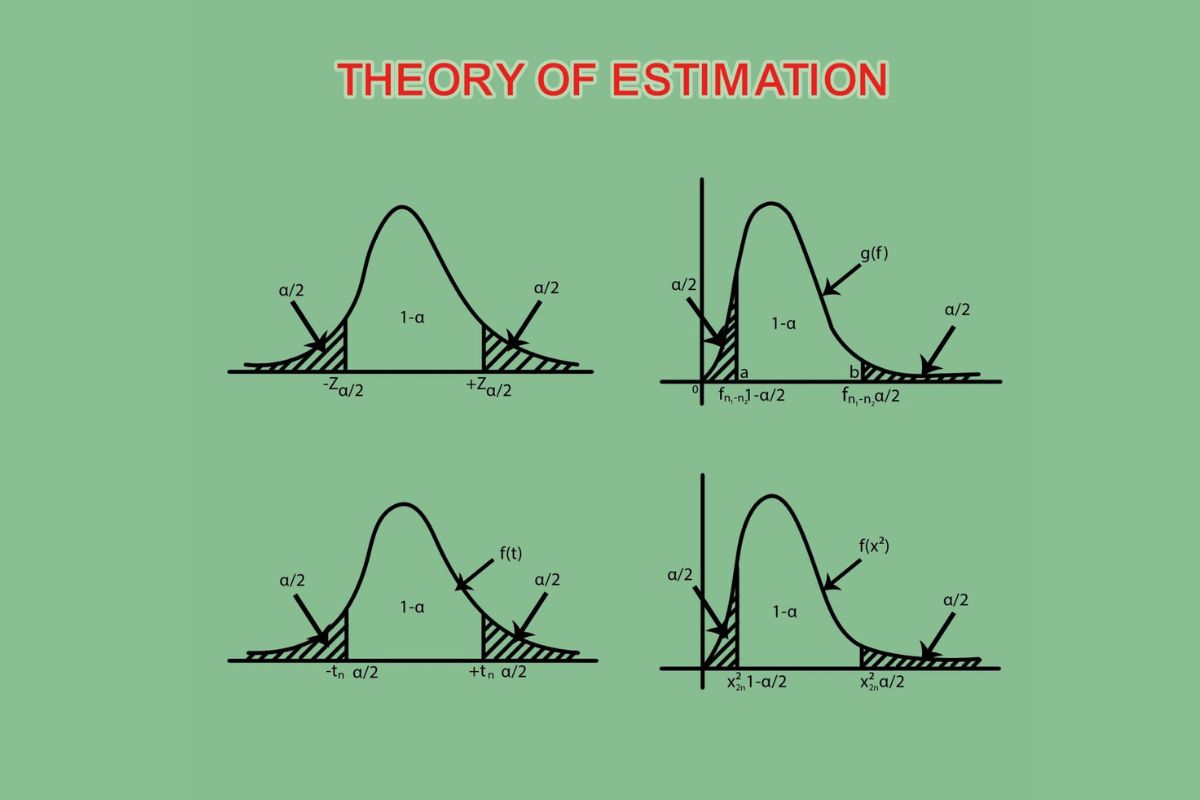
Estimation theory might sound complex, but it's all about making educated guesses. This field helps us predict unknown values using data we already have. Imagine trying to guess the number of jellybeans in a jar. Estimation theory gives you the tools to make the best guess possible. It's used in everything from weather forecasting to stock market predictions. Ever wondered how your GPS knows your location? Estimation theory plays a big role. By understanding these 27 facts, you'll see how this fascinating subject impacts daily life. Ready to dive into the world of smart guessing? Let's get started!
What is Estimation Theory?
Estimation theory is a branch of statistics and signal processing that deals with estimating the values of parameters based on measured data. It plays a crucial role in various fields, including engineering, economics, and biology. Here are some fascinating facts about this intriguing subject.
-
Estimation theory helps in making predictions about unknown parameters using observed data.
-
It is widely used in radar and sonar systems to detect objects and determine their positions.
-
The theory is essential in econometrics for estimating economic models and forecasting economic trends.
Key Concepts in Estimation Theory
Understanding the core concepts of estimation theory is vital for grasping its applications. These concepts form the foundation of the theory and its practical uses.
-
Parameter Estimation: This involves estimating the parameters of a probability distribution or a model.
-
Point Estimation: Provides a single value as an estimate of an unknown parameter.
-
Interval Estimation: Gives a range of values within which the parameter is expected to lie.
Types of Estimators
Estimators are algorithms or formulas used to estimate unknown parameters. Different types of estimators have unique properties and applications.
-
Maximum Likelihood Estimator (MLE): Finds the parameter values that maximize the likelihood function.
-
Bayesian Estimator: Uses Bayes' theorem to update the probability estimate as more evidence becomes available.
-
Least Squares Estimator: Minimizes the sum of the squares of the differences between observed and estimated values.
Properties of Estimators
Estimators have specific properties that determine their effectiveness and reliability. These properties are crucial for evaluating the performance of different estimators.
-
Bias: The difference between the expected value of the estimator and the true parameter value.
-
Consistency: An estimator is consistent if it converges to the true parameter value as the sample size increases.
-
Efficiency: An efficient estimator has the smallest possible variance among all unbiased estimators.
Applications of Estimation Theory
Estimation theory is applied in various fields to solve real-world problems. Its applications demonstrate its versatility and importance.
-
Signal Processing: Used to filter noise from signals and improve signal quality.
-
Control Systems: Helps in designing systems that can maintain desired outputs despite disturbances.
-
Machine Learning: Plays a role in training algorithms to make accurate predictions based on data.
Historical Background
The development of estimation theory has a rich history, with contributions from many renowned mathematicians and statisticians.
-
Carl Friedrich Gauss: Developed the method of least squares in the early 19th century.
-
Ronald A. Fisher: Introduced the concept of maximum likelihood estimation in the 1920s.
-
Thomas Bayes: Formulated Bayes' theorem, which is fundamental to Bayesian estimation.
Challenges in Estimation Theory
Despite its many applications, estimation theory faces several challenges. These challenges drive ongoing research and development in the field.
-
Nonlinear Models: Estimating parameters for nonlinear models can be complex and computationally intensive.
-
High-Dimensional Data: Handling large datasets with many variables requires advanced techniques and powerful computing resources.
-
Model Uncertainty: Choosing the correct model for estimation is often difficult and can impact the accuracy of the estimates.
Future Directions
Estimation theory continues to evolve, with new methods and applications emerging. The future holds exciting possibilities for this dynamic field.
-
Robust Estimation: Developing techniques that are less sensitive to outliers and model assumptions.
-
Adaptive Estimation: Creating estimators that can adjust to changing conditions and data patterns.
-
Quantum Estimation: Exploring the use of quantum computing to improve estimation accuracy and efficiency.
Fun Facts about Estimation Theory
Estimation theory isn't just about complex mathematics; it also has some interesting and fun aspects.
-
Everyday Use: People use estimation theory in daily life, such as estimating travel time or budgeting expenses.
-
Games and Puzzles: Estimation techniques can help solve puzzles and improve strategies in games.
-
Art and Music: Artists and musicians use estimation to create balanced compositions and harmonious melodies.
Estimation Theory's Impact
Estimation theory isn't just for mathematicians. It plays a huge role in everyday life. From predicting weather patterns to improving medical imaging, its applications are vast. Engineers use it to design better systems, while economists rely on it for accurate forecasts. Even your smartphone's GPS uses estimation theory to pinpoint your location.
Understanding the basics can give you a new appreciation for the world around you. It shows how math and statistics can solve real-world problems. Whether you're a student, a professional, or just curious, knowing a bit about estimation theory can be enlightening.
So next time you check the weather or use a GPS, remember there's a complex web of calculations making it all possible. Estimation theory is more than just numbers; it's a powerful tool shaping our modern world.
Was this page helpful?
Our commitment to delivering trustworthy and engaging content is at the heart of what we do. Each fact on our site is contributed by real users like you, bringing a wealth of diverse insights and information. To ensure the highest standards of accuracy and reliability, our dedicated editors meticulously review each submission. This process guarantees that the facts we share are not only fascinating but also credible. Trust in our commitment to quality and authenticity as you explore and learn with us.
